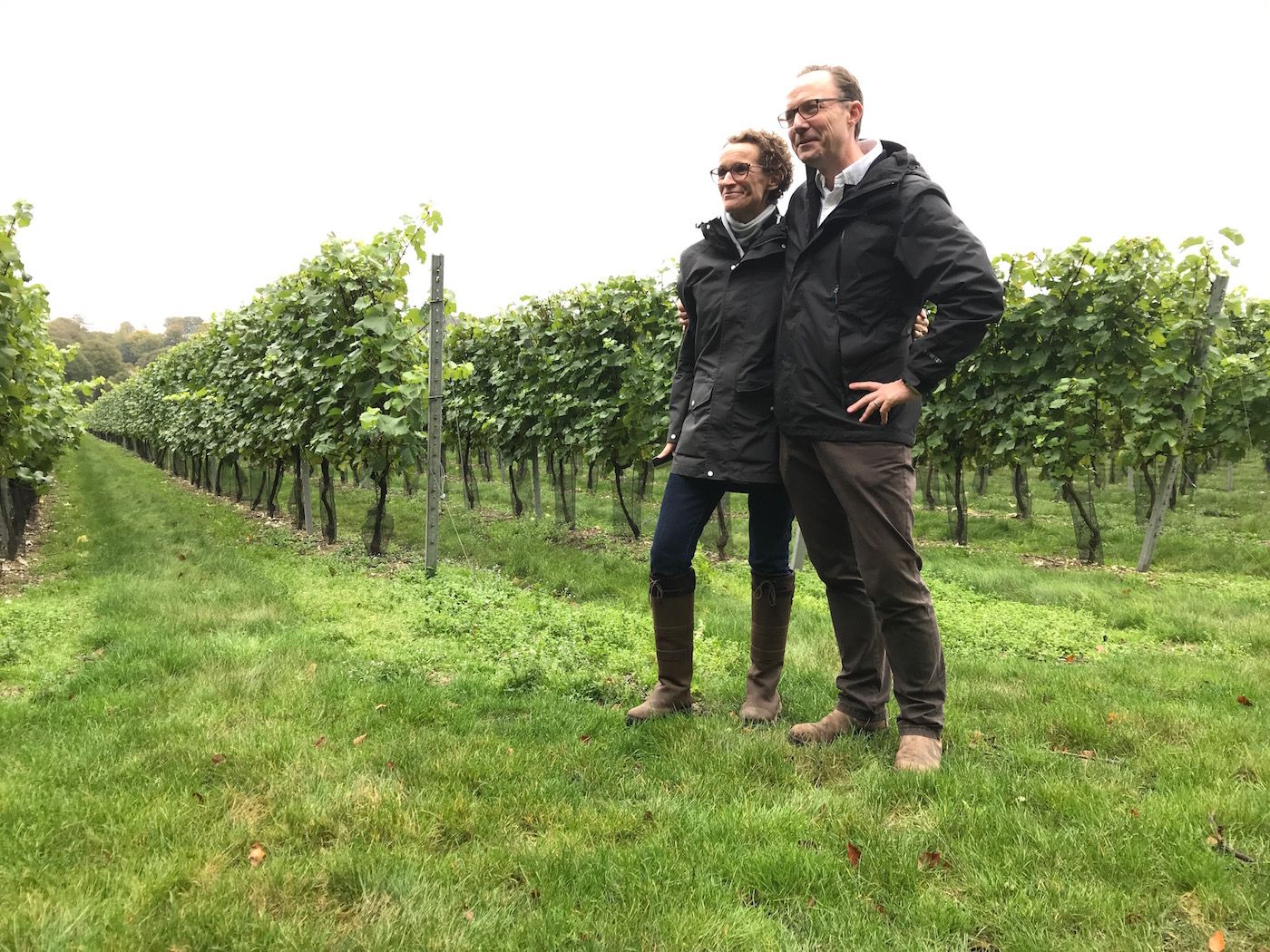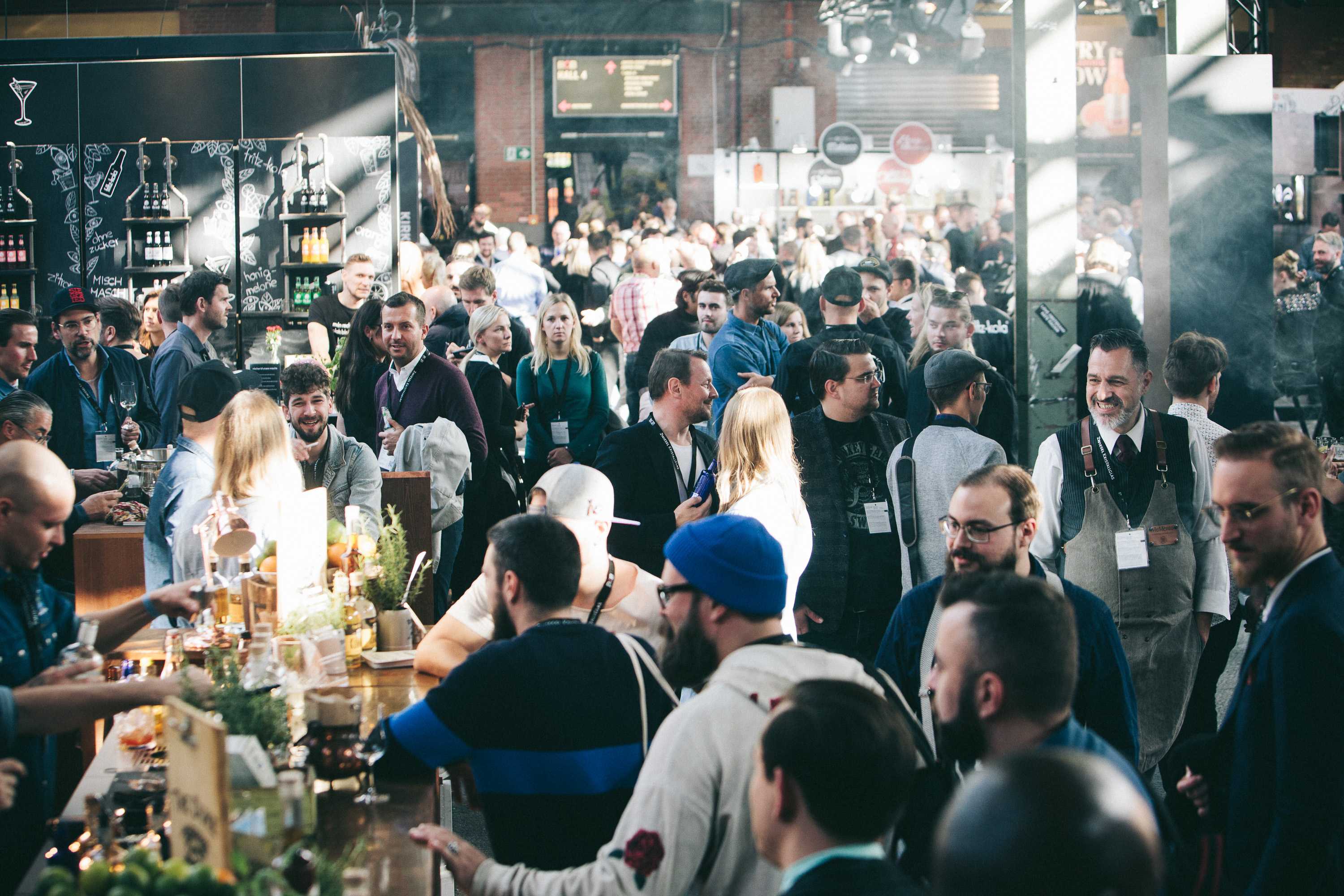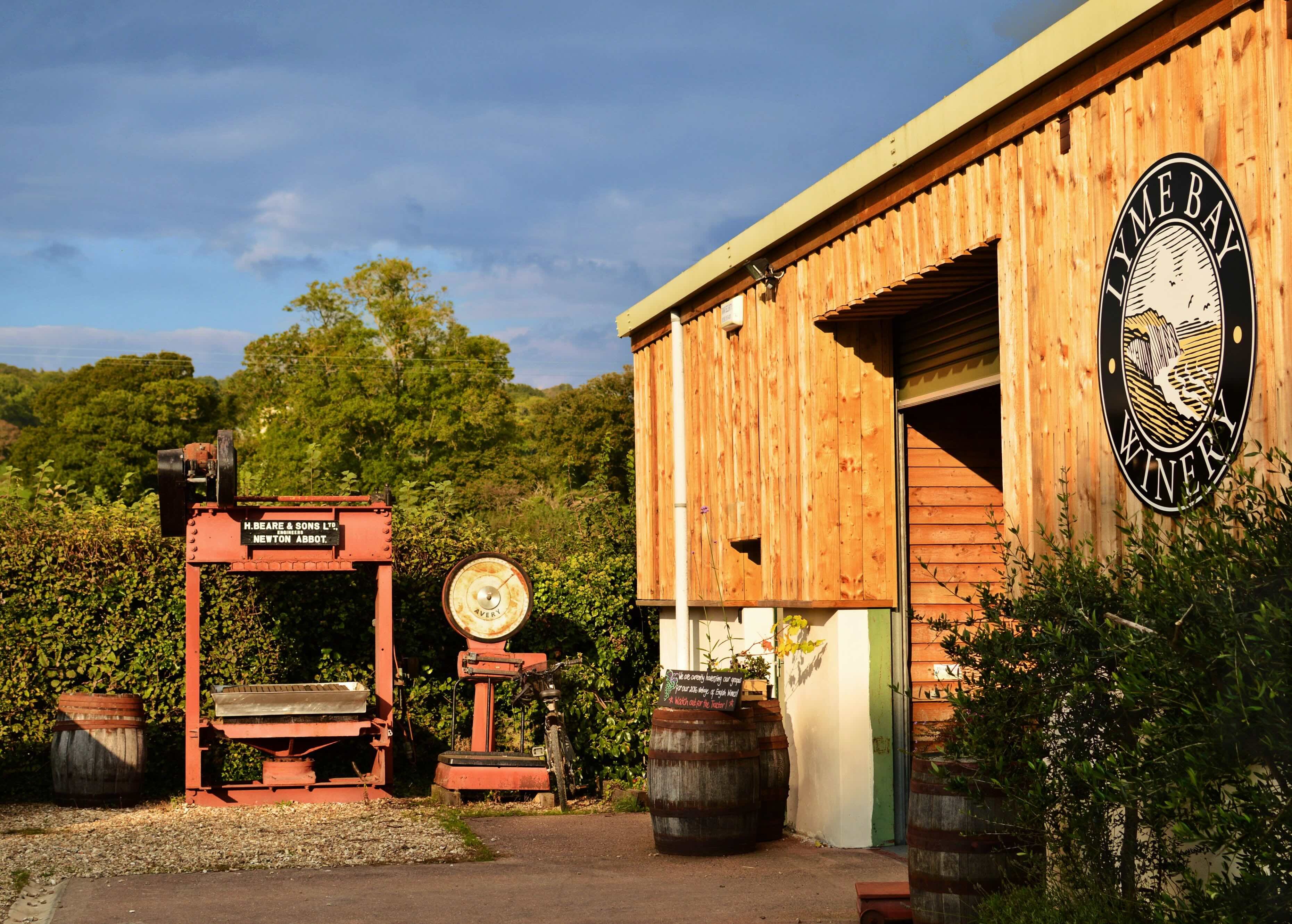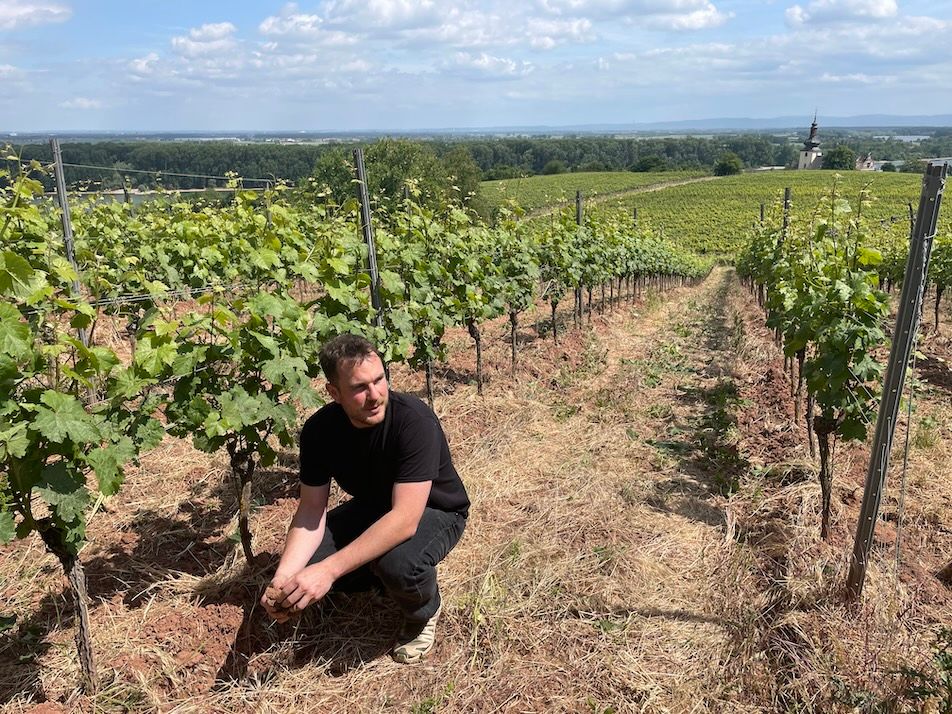By a stroke of luck The Pig Hotel group has recently opened a new country hotel close to Simpsons Wine Estate with a local product philosophy – only promoting English wine and so far not selling any Champagne by the glass.
“People who say England is suitable for viticulture are talking nonsense. Parts of England are suitable for viticulture,” Charles Simpson says bullishly, describing the meticulous research he and wife Ruth conducted before planting vines in Kent’s Ealham Valley in 2014 and setting up Simpsons Wine Estate.
“You are going to see more and more plantings over here in Kent,” Charles says.

“I would worry if we were only making sparkling here because we are not going to get the Prosecco market.” Charles Simpson explaining the layout of the estate’s second 20 hectare vineyard, planted in 2016/7, which helps give him total capacity to produce 250,000 bottles a year
The Simpsons used an agricultural study from the University of East Anglia that pinpointed exact locations in Kent that were on chalk, had the right aspect, wind protection and highest number of frost-free days thanks to its maritime influence (the sea is eight miles away). The study also concluded that a lot of vineyards in the UK are in the wrong locations.
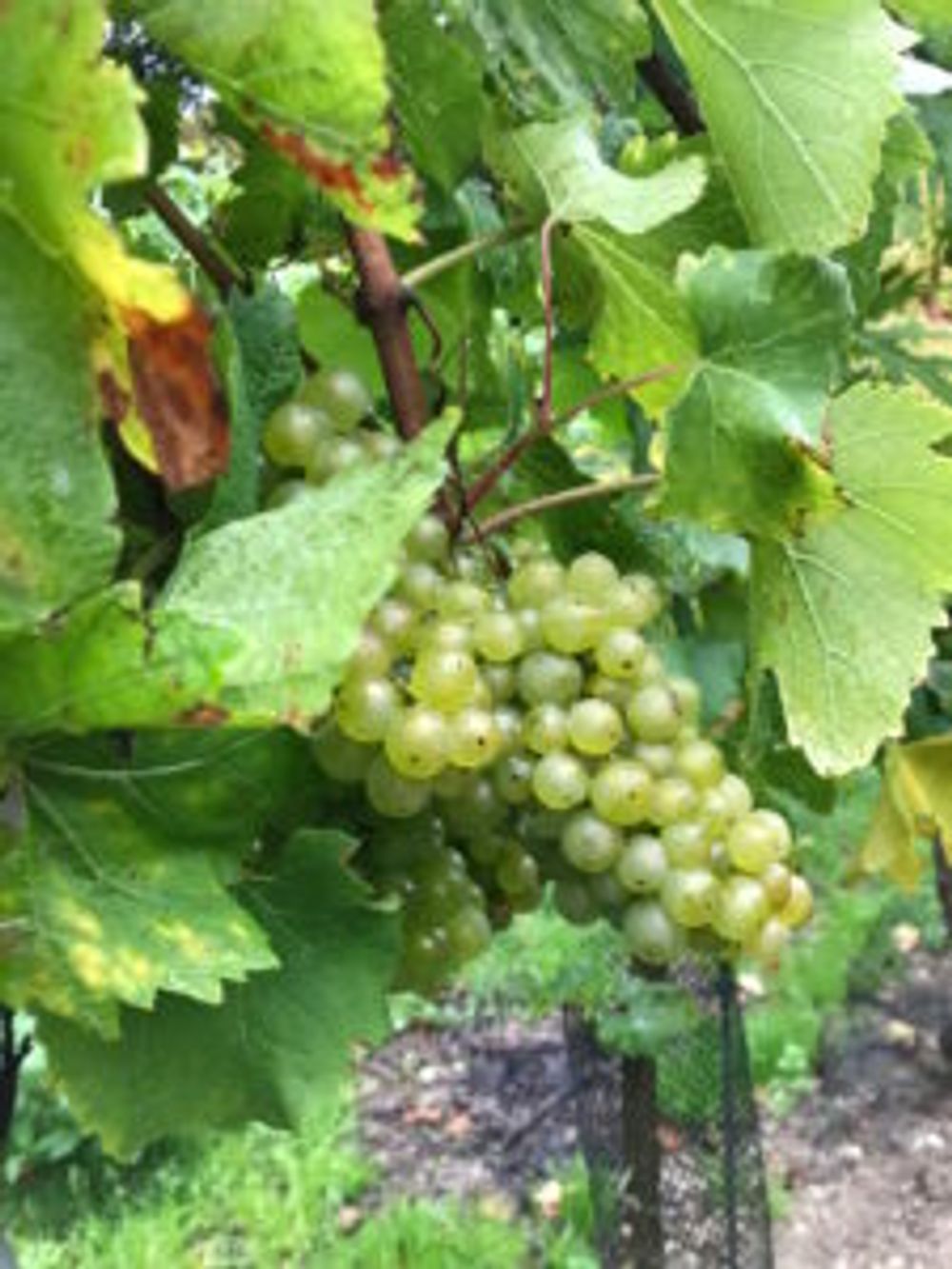
Chardonnay getting extended hang-time prior to harvest, October 14, 2019
“East is best because fruit maturity runs from East to West, so when you are talking about making wine on the margins of what is possible, you can leave the fruit longer on the vine or get it in quicker when the maturity starts,” Charles says
Charles refers to the English wine scene as the “land of the blind with a few one-eyed men,” where he believes many estates have got their geography wrong, have planted the wrong clones for still wine, are using whole bunch incorrectly and lack the kind of viticultural infrastructure that can help manage costs and facilitate quick decisions in the vineyard.
The Simpsons have quickly got a reputation for doing things differently and ploughing their own furrow which would count for little were it not for the fact that their flagship wines are already delivering in spades, including …. wait for it, still wines.
Tales of Innocence and Experience
Ruth and Charles Simpson did not have a viticultural background when they planned to open a winery 18 years ago. She had a humanitarian background, he a pharmaceutical one. “When we were thinking about where we wanted to set up we were clear that it had to be in an area that was upcoming, we wanted to be part of somewhere that was growing a reputation rather than inheriting a reputation,” Ruth explains.
“We thought of Australia, the last place on earth was going to be England.”
What they settled on was not England but the Languedoc Roussillon which they believed was “the only place in the Old World where we could do a New World project.” The year was 2002 when they bought Domaine Sainte Rose a Sixteenth Century chateau in the South of France where they now produce 400,000 bottles of wine that in the UK largely gets distributed through Majestic and Waitrose.
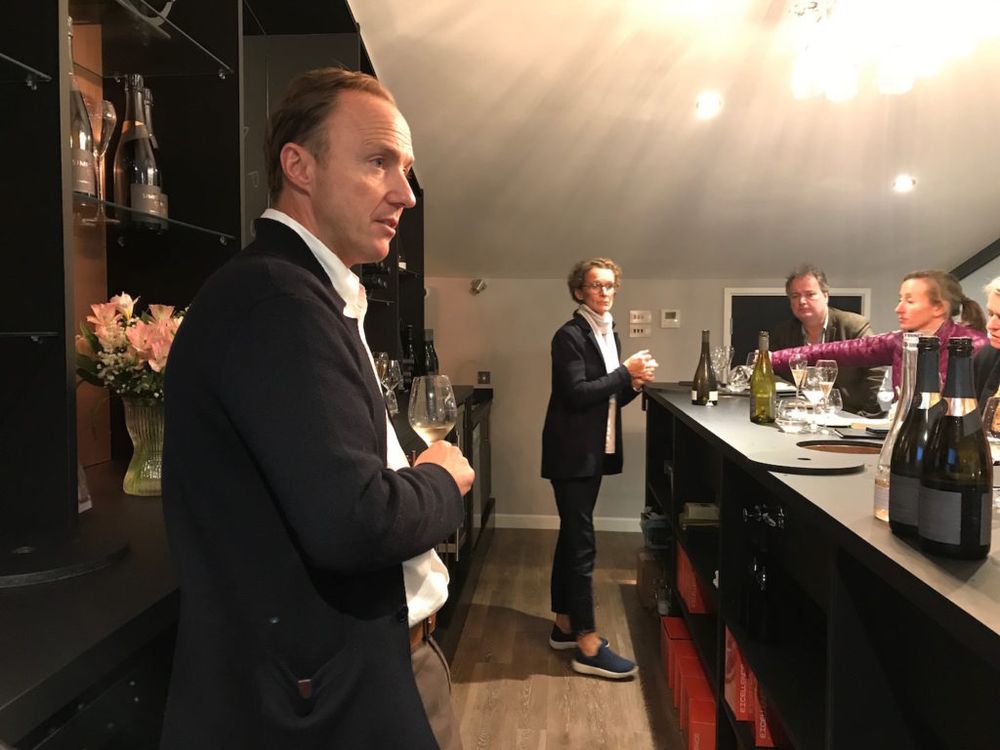
“This business has been ‘cash out’ since 2012, but with still wine you are getting paid back immediately, and the prices are not dissimilar to the price of our sparkling wines.” Charles Simpson at a trade tasting at the winery.
The experience of working 18 harvests of six white and eight red wines in France has been key to their strategy in England: the precise location of the vineyards, the clones they planted, the infrastructure required. They are also able to call on their team in France from ‘flying’ Australian winemaker Leigh Sparrow who makes wine in both Simpson estates, to their French planting teams and nurseries.
“In England you are in the land of the blind with a few one-eyed men. There are only two (German) planting crews and what they charge for vines and planting we can cut in half by using our own people from the Languedoc. We always try and source from the UK and support local but you have to think commercially at the end of the day,” Charles says.
Making sparkling wine in England was also not a first-time experience because they cut their teeth in 2012 making a Methode Traditionnelle in the Languedoc. There is the temptation, of course, that they could source still wines from Domaine Sainte Rose – Chapel Down sources one of its three still reds from the Languedoc’s Domaine Gayda – but that is not a route the Simpsons are going down, putting their faith in the potential of English wine.
“When we bought the land in 2012 it is because we saw the potential of England and wanted to be a part of that genesis of growth,” Charles says.
Like the Languedoc they wanted to be in a wine-growing region where a reputation could be forged rather than inherited.
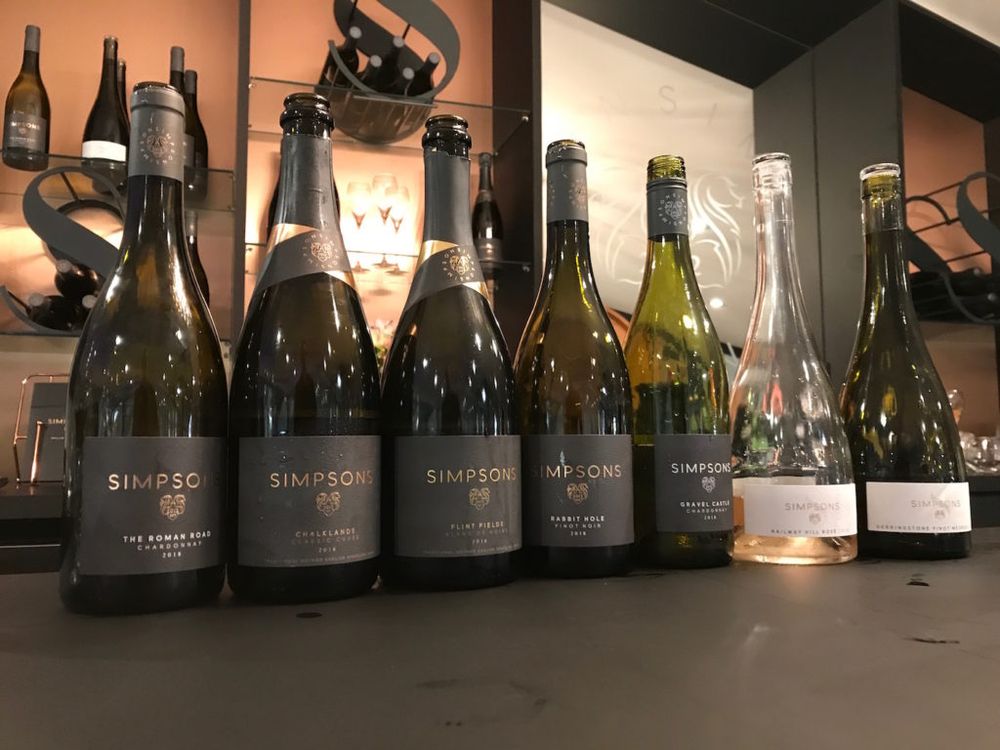
Five of the eight-strong portfolio are still wines
The drive for making English still wine
Given the amount of new vines that have been planted in Britain this year, there has been speculation in some quarters that supply will outstrip demand. Charles disagrees.
“English wine only accounts for 1% of the domestic market – so there really is so much head space,” he says, “it should be 30-40% which we might be able to achieve in the future if people diversify.”
“We drink 120 million bottles of sparkling wine in this country and just 35 million bottles of that is Champagne. I would worry if we were only making sparkling wine here because we are not going to get the Prosecco market. But with still wine it is a different story – English still wine is only a fraction of a fraction of the domestic market.”
Key to the Simpsons strategy then is making English still wine: a third of Simpsons production is now still wines, which has been driven by demand, initially from Scandinavian countries “They see it as another English luxury brand, they are used to seeing Aston Martin, Burberry…”
“But the big question is replication otherwise it’s not a business.”
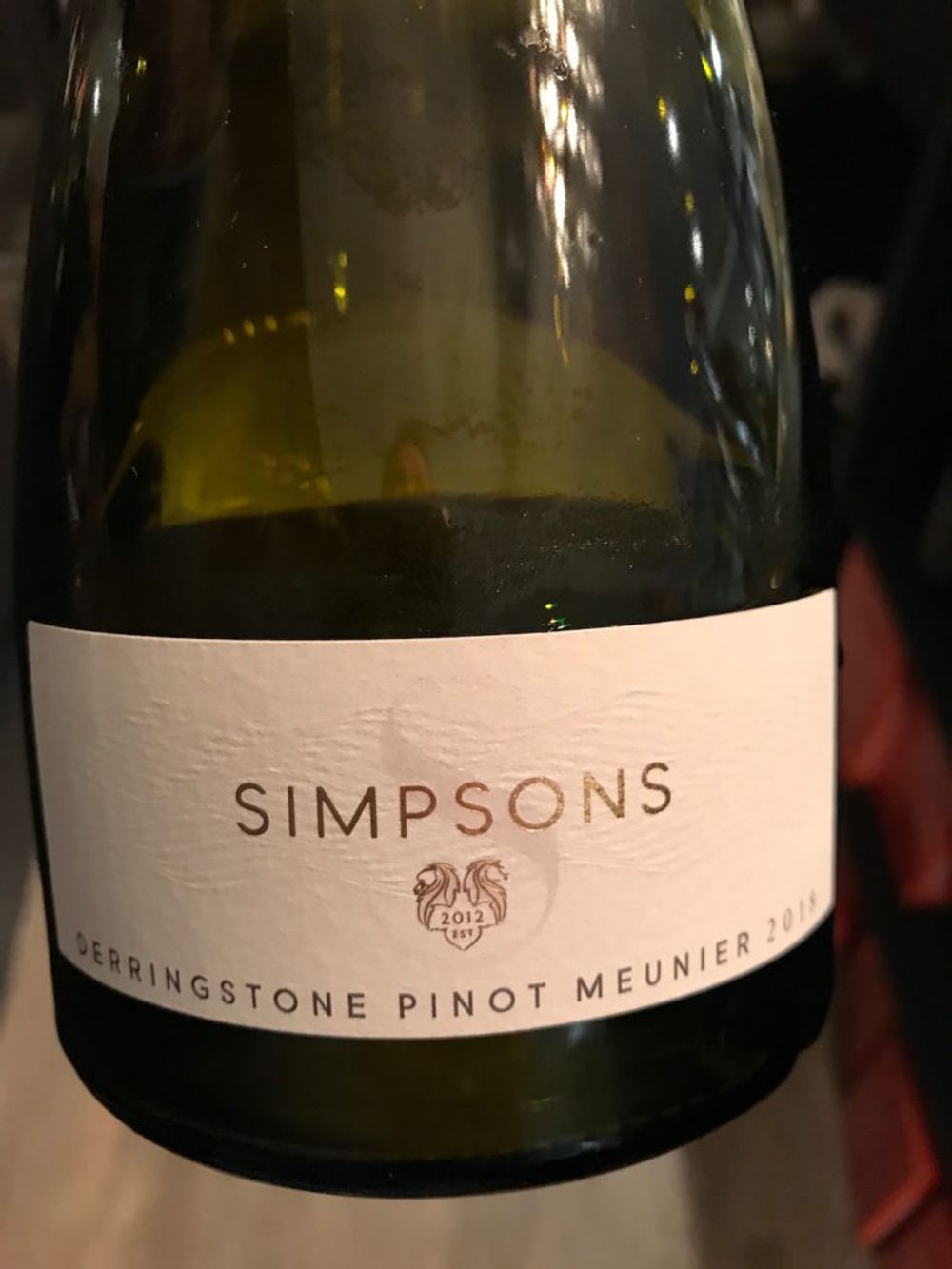
The Simpsons claim this still Pinot Meunier as England’s first – vinified as a white wine – it was one of the highlights of the tasting
After 30 hectares of land were bought in 2012, the Simpsons ensured a good percentage of vines they planted two years later was with Burgundian still wine clones, the original intention being as a blending component. But experimentation directed them towards turning this fruit into still wines in their own right.
“We picked all the 548 Chardonnay in 2016 for sparkling but through fermentation it showed some interesting characteristics so we made a small tank – 600 bottles – which was well received (we had placed it in various Michelin starred restaurants). We convinced ourselves it was maybe a fluke, then with the second vintage we thought it was good luck, and now by the third vintage we realised it was no longer a fluke,” Charles says.
The Simpsons portfolio now boasts two still Chardonnays, Pinot Meunier, a Rosé and a Pinot Noir. A new vintage of the Roman Road Chardonnay will be released on November 1 when Simpsons also unveils its Blanc de Noirs.
Another advantage of still wine, of course, is cash flow. The Simpsons describe their estate in England as ‘needy’ and, since buying here have moved the family home from the South of France to Canterbury.
“This business has been ‘cash out’ since 2012, but with still wine it is in bottle after six to nine months rather than three years for sparkling, so with still wine you are getting paid back immediately, and the prices are not dissimilar to the price of our sparkling wines,” Charles says.
Wrong clones and lack of technical knowhow
Charles Simpson says that the reason other English wineries are not producing such good still wine is two fold – they are planting the wrong clones and have the wrong kit. He believes that it is impossible to make quality still wines from the austere, high-yielding sparkling clones that many have planted.
“They have also made the mistake of thinking that they don’t need a de-stemmer/ crusher. The berries might be ripe but the stalks and pips aren’t which will give you green tannins, so if there is no de-stemmer winemakers will be using whole bunch pressing which is all wrong,” he says.
The Simpsons have invested heavily so that they can ensure maximum quality of fruit.
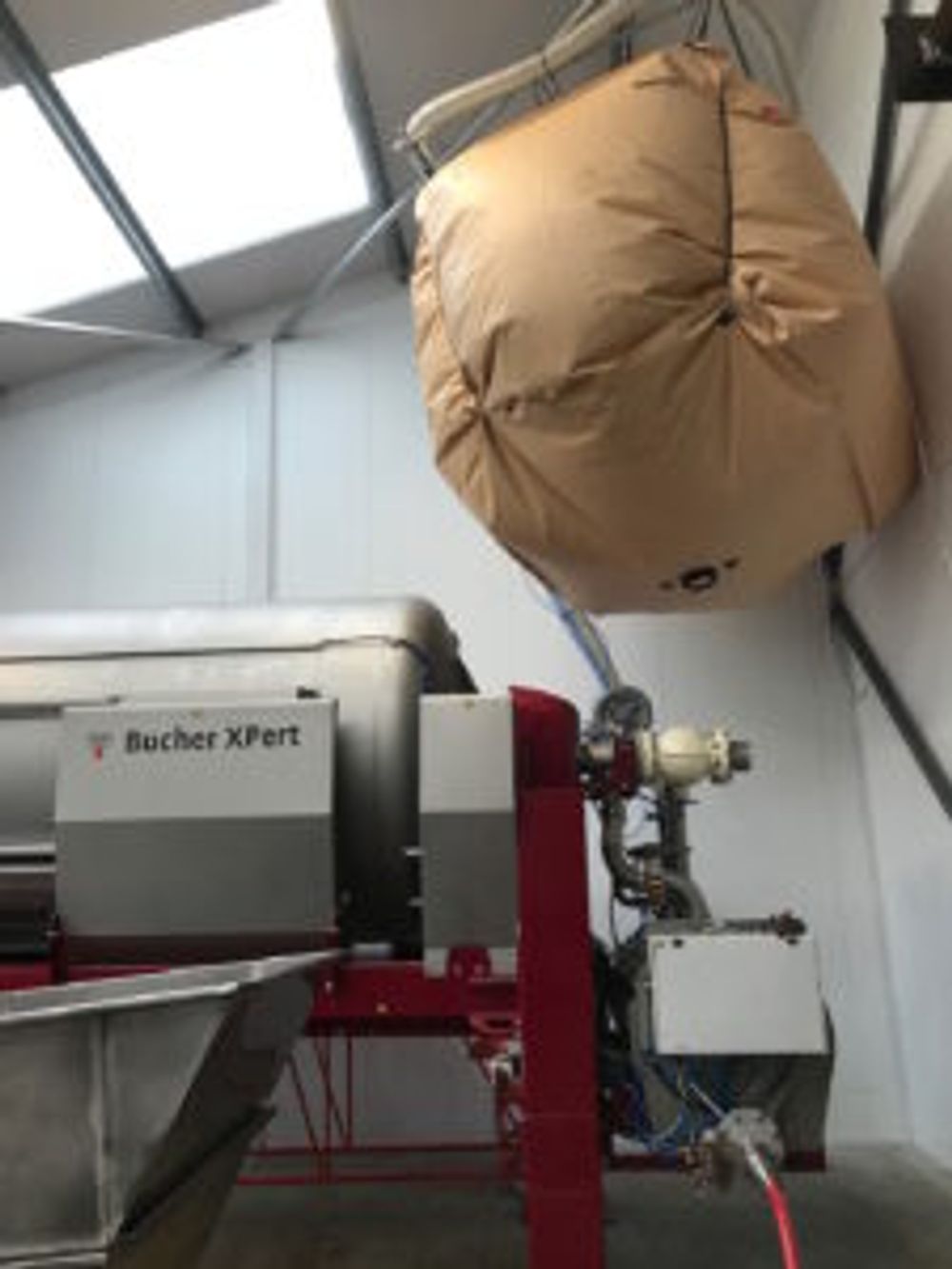
One of the two presses using nitrogen to help prevent oxidation
Its two presses are oxygen-free – using giant bags of nitrogen which replaces the air left when the berries are crushed. This anti-oxidation process protects the primary flavours of the wine, the citrus, Granny Smith notes which become more tropical if the wine is oxidised. “We like to end up with a spectrum of flavours,” Charles says “which is good for blending.”
Simpsons also has invested £20k in a piece of analytical kit so that they can analyse the grapes in real time.
“England really needs to grow up,” Charles says “everyone uses BRI Campden which is the only lab in the UK. In France where we are, for example, I have six labs close to me which I can use.”
Apart from chapitalising, and spraying anti-botrytis spray, Charles also reveals that Simpsons uses mannoproteins that can exacerbate sucrosity and weight which are helpful to build structure into the wine, particularly the mid and back palate.
Local investment in the immediate vicinity
Charles says that when they first bought the land in the Ealham Valley there was some concern from locals because grapes was such an unknown quantity in the area.
“But vineyards are good for the countryside. Because of the commitment and investment it means the land will be vineyard indefinitely, so it will be greener for longer unlike arable farming. Wine is also good for local employment because it creates skilled jobs in rural communities.”
“Also, if it was wheat we were growing it would be non-taxable whereas with every bottle we make of our sparkling, £8 goes in VAT and duty to the government for doing absolutely nothing, and still they don’t serve English wine in the House of Lords and the Commons. Can you imagine in the Lycée them serving anything other than French?”
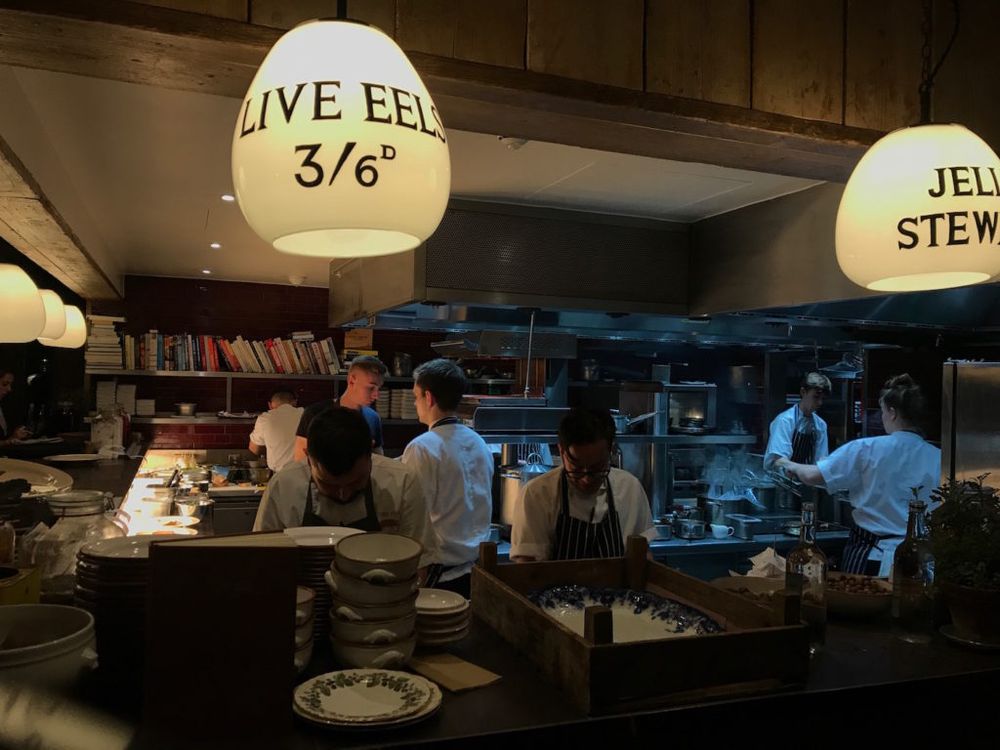
The nearby Pig Hotel in Bridge has a local product philosophy
Apart from the Simpsons investing considerable sums into the local area, they were delighted to see they had been joined by Britain’s most influential hotelier Robin Hutson who decided to open one of his Pig hotels in the nearby village of Bridge. The Pig has a local produce-sourcing policy which tries to operate on a 25-mile radius around the hotel, meaning that sparkling wine from the likes of Gusbourne and Simpsons is on the wine list whereas Champagne is less readily available.
“We will serve people a bottle of Champagne if they specifically ask for it,” Hutson tells me, “but to date we have not served Champagne by the glass, only English sparkling.”
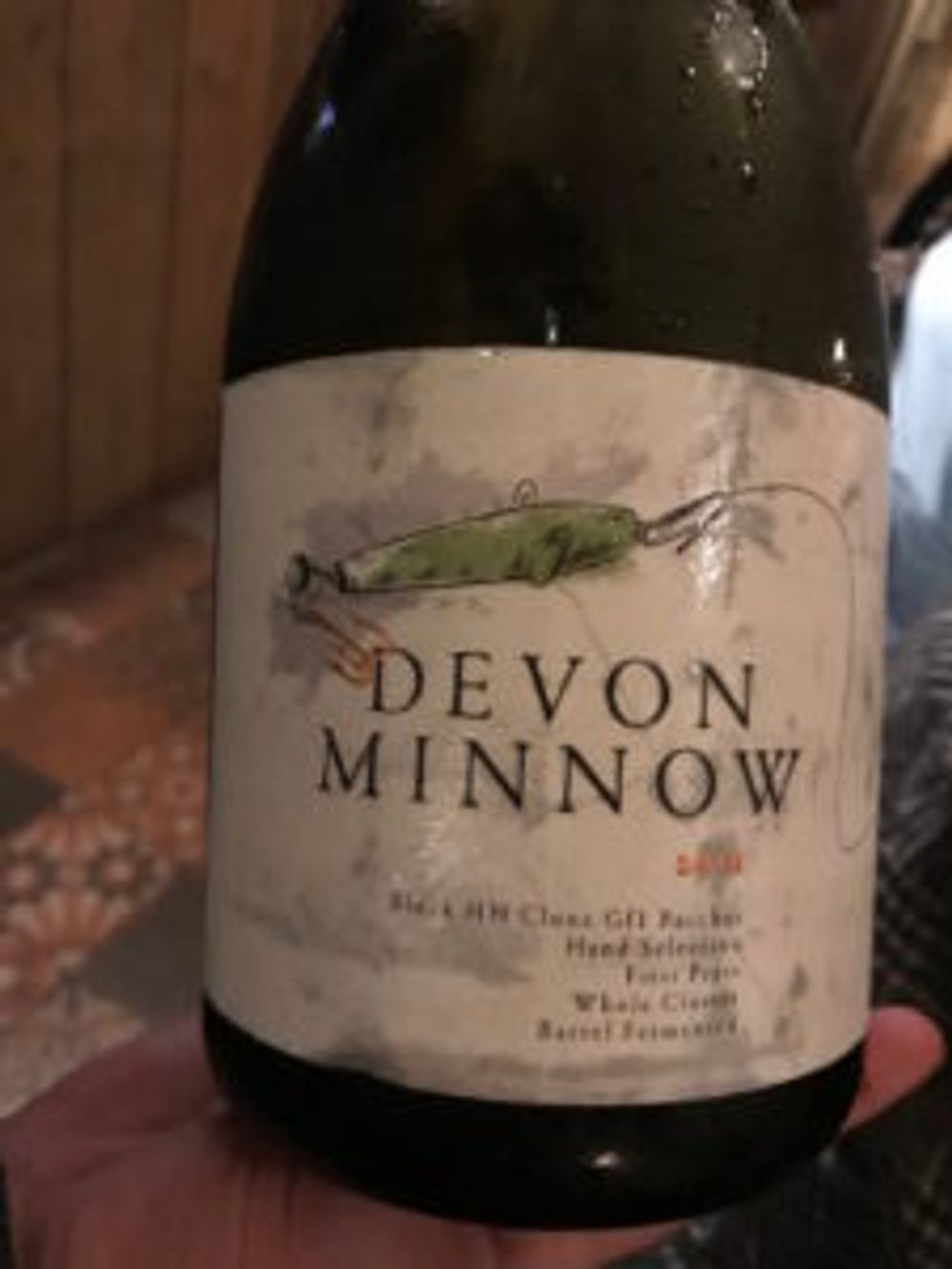
At a tasting dinner in The Pig, the evening before we visited the Simpsons estate Hutson served his own wood-aged Bacchus from magnum, before we drank a range of Simpsons wines, Hutson regaling us with stories of his time with close friend Gerard Basset with whom he had set up the Hotel du Vin & Bistro group.
So how were the wines tasting?
Flint Fields, Blanc de Noirs, 2016
A new cuvée this wine is pale wheat-coloured; attractive aromas, pure, elegant, slightly reticent nose; the palate is beautifully balanced (5.3 gms r/s) with a lively but fine-beaded mousse, nice bite of acidity in the attack, and then the mid-palate fleshes out with red, orchard and citrus fruit and a touch of sea spray; attractive fine texture, mineral notes, long finish. I can see this ageing well. Elegant and classy this has spent 26 months on the lees, disgorged in June, released Nov 1 for an RRP of £45.
Chalklands Classic Cuvée 2016
Traditional method classic cuvée which is a blend of 60% Pinot Noir and 40% Chardonnay. Very pale yellow in colour; Pinot is immediately obvious on the nose, there is an attractive bouquet of citrus peel, apple, a touch of fresh bread which disappears soon after opening; the palate is clean, pure and long with a firm bite of linear-acidity, flavours of redcurrant, Granny Smith, lemon flesh. Dosage is 9gms/l, acidity 5.5 although the overall tingle makes it feel higher. On lees for 20 months. RRP £28
Railway Hill Rosé 2018
Although the attractive bottle, Vinlock closure and colour suggests Provence, this is a Rosé from Pinot Noir clone 292 that is very different in flavour profile. Gorgeous nose – yellow grapefruit, lime peel, slight nuttiness – leads into a citrus melange, mineral, powerful acidity and flavours of lime zest and crisp Granny Smith apples. Grainy texture and a massive finish that goes on for ages. RRP £19
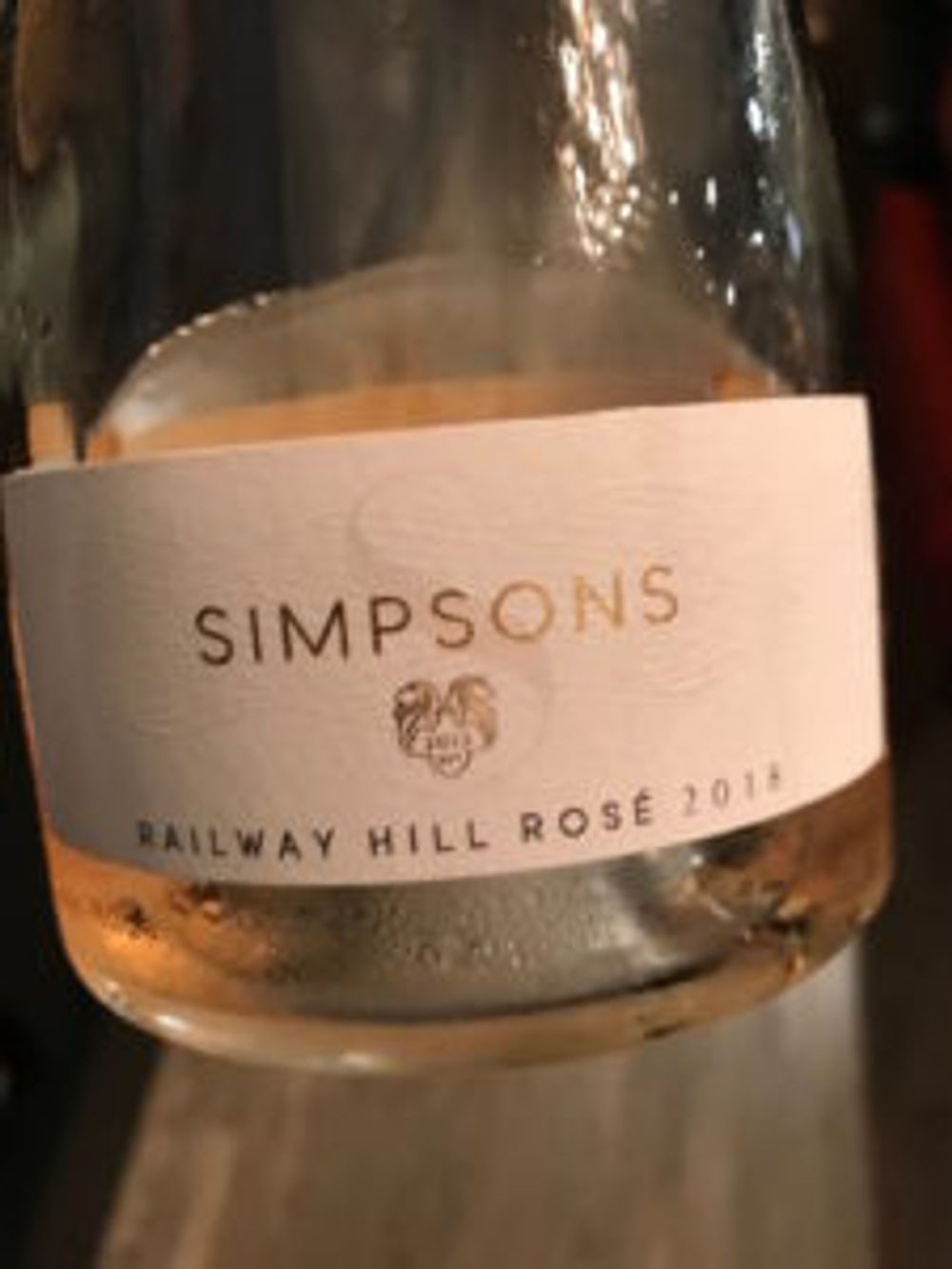
Gravel Castle Chardonnay 2018
Although it is described as being made in an unoaked style, the combination of one new oaked barrel (1% of the blend) and the full malo-lactic fermentation gives it a lot of gunflint and makes it very ‘oaky’ on the nose. There is also notes of orchard fruit, citrus, but it is the palate that works so well and makes this one of the stand-out, great value for money wines in the portfolio. Creamy, slightly tropical but with the trademark lively acidity that makes this great for food-pairing. RRP £14
Derringstone Pinot Meunier 2018
Claiming to be the first still Pinot Meunier in the UK, this is a curio that really is worth checking out – vinified as it is as a still white wine. On the nose there is a distinct sake-like chalkiness which will make it a natural for sushi/sashimi/poke food-pairing. The palate is Kentish red fruit with cream – balanced nicely by the acidity. The fruit is ripe and complex. A real sommelier wine this one. RRP £19
Roman Road Chardonnay 2018
The estate’s top, single site Chardonnay, is what they are aiming to be their ‘Montrachet’ wine – ie. Burgundian clones, skilful use of 2nd fill oak (60% of the fruit), nice weight in the mouth, refined feel. There are notes of honeysuckle and peach on the nose, the palate has Cox’s apple, slightly nutty, long textured finish, with a little twist of acidity at the tail. Very nice, although I suspect there will be considerable vintage variation. RRP is £26 although you might be able to find some previous vintages on the grey market for less.
Rabbit Hole Pinot Noir 2018
Not sure I have had a better English Pinot Noir. The nose is clearly Pinot – primary red fruits, five spice, bit of farm; the mouthfeel is young, but ripe, fresh black fruits, slightly spicy, with a nice chalky texture undercut by bright acidity. It has a natural elegance and Bourgogne Rouge vivacity. Will get better with a bit of cellaring and I can imagine as the vines get older and the fruit a little more concentrated this will be a cuvée to keep an eye on. RRP £26.
The Simpsons wines are distributed to the on-trade through Roberson.
